 Comcast and Time Warner Cable want New York State regulators to believe disclosing the locations of their customer care centers, revealing the prices they are charging, and describing exactly what Comcast will do to Time Warner Cable employees and customers post-merger are all protected trade secrets that cannot be disclosed to the general public.
Comcast and Time Warner Cable want New York State regulators to believe disclosing the locations of their customer care centers, revealing the prices they are charging, and describing exactly what Comcast will do to Time Warner Cable employees and customers post-merger are all protected trade secrets that cannot be disclosed to the general public.
New York Administrative Law Judge David L. Prestemon found scant evidence to support many of the claims made by the two cable companies to keep even publicly available information confidential, despite an argument that disclosure of the “trade secrets” would cause substantial competitive injury. His ruling came in response to a detailed Freedom of Information Law request from New York’s Utility Project which, like Stop the Cap!, is having major problems attempting to find any public interest benefits for the merger of the two cable companies.
The information Comcast and Time Warner Cable want to keep off-limits is vast, including the prices the companies charge for service, their licensed franchise areas, the locations of their call centers and walk-in customer care locations, and what exactly Time Warner Cable is doing with New York taxpayer money as part of the state’s rural broadband expansion program:
“In general, the redacted trade secret information and the Exhibits identified below include, without limitation, information and details concerning (i) the current operations and future business plans of the Companies, (ii) strategic information concerning their products and services, (iii) strategic investment plans, (iv) customer and service location information, and (v) performance data. This highly sensitive information has not been publicly disclosed and is not expected to be known by others. Moreover, given the highly competitive nature of the industries in which Comcast and Time Warner Cable compete, disclosure of these trade secrets would cause substantial injury to the Companies’ competitive positions– particularly since the Companies do not possess reciprocal information about their competitors.”
That’s laughable, declares the Public Utility Law Project.

Norlander (Photo: Dan Barton)
“The ‘competition’ for TV, broadband, and phone business in New York generally boils down to a duopoly (phone company or cable ) or at best oligopoly (maybe phone and cable companies plus Dish or wireless), in which providers are probably able to deduce who has the other customers and likely know, due to interconnection and traffic activity, what their ‘rivals’ are doing,” said Gerald Norlander, who is aggressively fighting the merger on behalf of the Public Utility Project.
Stop the Cap! wholeheartedly agrees and told regulators at the Public Service Commission’s informational meeting held last month in Buffalo that Comcast’s promised merger benefits are uniformly vague and lack specifics. Now we understand why. The public does not have a right to know what Comcast’s plans are.
“When it comes to divulging their actual performance and actual intentions regarding matters affecting the public interest, such as Internet service to schools, extension of rural broadband, service quality performance, jobs in the state, universal service, and so forth, well, that is all a ‘trade secret’ justified by nonexistent competition,” said Norlander. “Thus, the situation remains the same, there is insufficient available evidence to conclude that the putative incremental benefits of the merger outweigh its risks.”
Here is a list of what Comcast and Time Warner Cable believe is none of your business. Judge Prestemon’s rulings, announced this morning, follow. He obviously disagrees. But his decisions can be appealed by either company:
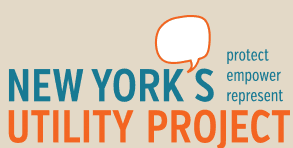 “Details of Time Warner Cable’s current broadband deployment plans in New York. In particular, the information contains the specific details about such plans, including the franchise area, county, total miles of deployment, number of premises passed and the completion or planned completion date. Such information is kept confidential by Time Warner Cable” (ruled against Comcast/Time Warner Cable)
“Details of Time Warner Cable’s current broadband deployment plans in New York. In particular, the information contains the specific details about such plans, including the franchise area, county, total miles of deployment, number of premises passed and the completion or planned completion date. Such information is kept confidential by Time Warner Cable” (ruled against Comcast/Time Warner Cable)- “information regarding the Companies’ promotional rates for service in various locations within their respective footprints – as well as competitive intelligence concerning competitor offerings. This compilation and competitive analysis are not publicly available.” (ruled for Comcast/Time Warner Cable)
- “specific details of Time Warner Cable’s current build-out plans to rural areas of New York, as well as Comcast’s future business plans in this area. The information also contains anticipated financial expenditures for Time Warner Cable’s build-out plans. Such information has not been publicly disclosed.” (ruled against Comcast/Time Warner Cable)
- “information concerning the New York schools and libraries served by Time Warner Cable, as well as information concerning Comcast’s future business plans to serve such entities. This information is kept confidential by Time Warner Cable and has not been disclosed to the public.” (ruled against Comcast/Time Warner Cable)
- “information concerning the number of Comcast’s “Internet Essentials” customers in New York, as well as Comcast’s future business plans for the “Internet Essentials” program.” (ruled against Comcast/Time Warner Cable)
- “the Companies’ detailed customer and service quality data.” (ruled for Comcast/Time Warner Cable)
- “information concerning the Companies’ current operations and staffing levels in New York, as well as Comcast’s future business plans concerning post-merger operations and employee levels.” (ruled against Comcast/Time Warner Cable)
 “information setting forth the number of subscribers to Time Warner Cable’s “Everyday Low Price” broadband service.” (ruled for Comcast/Time Warner Cable)
“information setting forth the number of subscribers to Time Warner Cable’s “Everyday Low Price” broadband service.” (ruled for Comcast/Time Warner Cable)
- “Comcast’s handling of customer requests for an unlisted service, and how Comcast handles customer inquiries related to this subject matter.” (ruled for Comcast/Time Warner Cable)
- “Comcast’s future business plans with respect to particular subject matters.” (ruled against Comcast/Time Warner Cable)
- “information and performance statistics relating to the Companies’ call centers in New York and the Northeast.” (ruled for Comcast/Time Warner Cable)
- “information concerning Time Warner Cable’s operations as they relate to projects funded by federal or state [energy efficiency or distributed energy resource] programs.” (ruled against Comcast/Time Warner Cable)
- “information concerning Comcast’s operations and future business plans relating to avoidance of truck rolls and vehicle fleets.” (ruled for Comcast/Time Warner Cable)
- “information relating to the number of Wi-Fi hotspots that Time Warner Cable has deployed in New York, as well as Comcast’s future business plans in this area.” (ruled against Comcast/Time Warner Cable)
- “information concerning Comcast’s handling of cyber-security issues associated with its Xfinity Home service.” (ruled against Comcast/Time Warner Cable)
- “information concerning the Companies’ operations and customers in relation to cellular backhaul service.” (ruled for Comcast/Time Warner Cable)
- “information concerning Time Warner Cable’s projects funded by NYSERDA” (ruled against Comcast/Time Warner Cable)
- “projects developed in conjunction with New York State” (ruled against Comcast/Time Warner Cable)


 Subscribe
Subscribe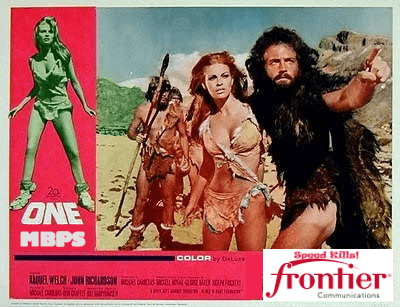

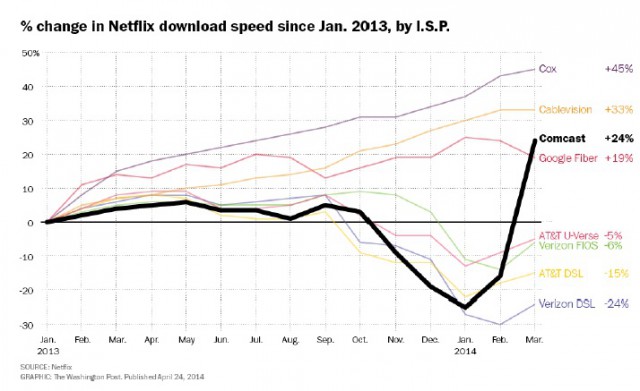
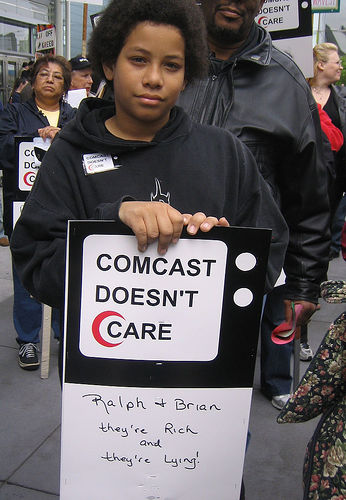 Consumers have a legitimate fear that if access to fiber-optic networks is eventually for sale to the highest bidder, then not only will it stifle the entrepreneurial energy unleashed by the democratizing forces of the Internet, but will also potentially lead to higher prices for consumers in accessing content. Under that scenario, consumers are hit twice—first by paying for Internet access to their home and second by paying for certain content providers’ preferred access.
Consumers have a legitimate fear that if access to fiber-optic networks is eventually for sale to the highest bidder, then not only will it stifle the entrepreneurial energy unleashed by the democratizing forces of the Internet, but will also potentially lead to higher prices for consumers in accessing content. Under that scenario, consumers are hit twice—first by paying for Internet access to their home and second by paying for certain content providers’ preferred access. As
As 
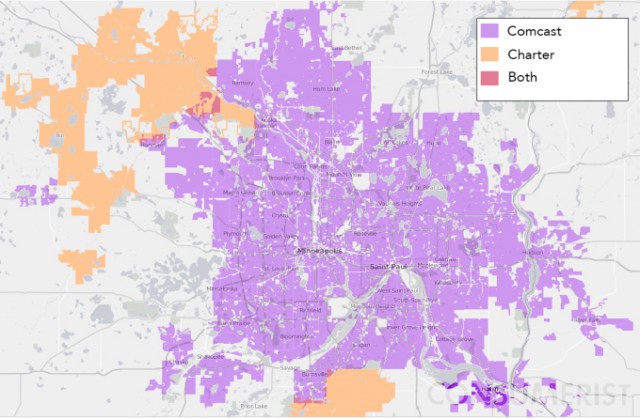
 The New York Public Service Commission needs to hear from you about the Comcast-Time Warner Cable merger. Unlike some of the southern and midwestern states that have utility commissions that basically rubber stamp the agenda of Big Telecom companies, New York’s PSC has a reputation for being tougher and more customer-oriented. But the PSC cannot act in your interest if you don’t share your views.
The New York Public Service Commission needs to hear from you about the Comcast-Time Warner Cable merger. Unlike some of the southern and midwestern states that have utility commissions that basically rubber stamp the agenda of Big Telecom companies, New York’s PSC has a reputation for being tougher and more customer-oriented. But the PSC cannot act in your interest if you don’t share your views.